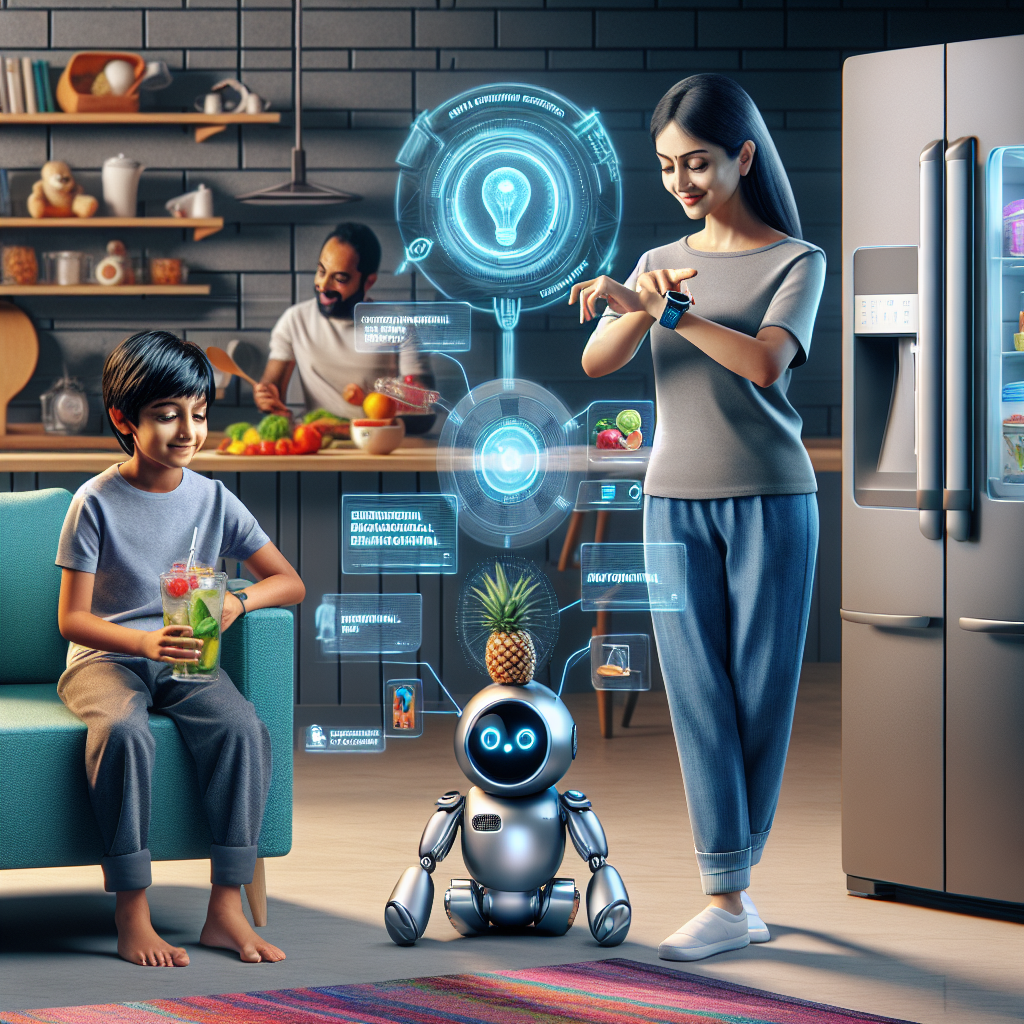Discover How AI is Revolutionizing Everyday Gadgets in 2025
Artificial Intelligence (AI) continues to reshape our daily lives, and in 2025, its integration into everyday gadgets has reached unprecedented levels. From smart homes to personal devices, AI is transforming the functionality, convenience, and efficiency of the tools we use every day. This article explores the groundbreaking ways AI is revolutionizing everyday gadgets in 2025 and provides insights into what this evolution means for consumers and technology enthusiasts alike.
1. AI-Driven Smart Home Devices: Enhancing Comfort and Efficiency
Smart homes have become more intelligent in 2025, thanks to AI advancements. Devices such as thermostats, lighting systems, and security cameras now leverage AI algorithms to better understand user behavior, preferences, and environmental conditions.
- Adaptive Climate Control: AI-powered thermostats analyze patterns in your daily schedule and local weather. They adjust heating and cooling precisely to increase comfort while minimizing energy consumption.
- Intelligent Lighting: AI-enabled lighting systems automatically adjust brightness and color temperature depending on the time of day, activity, or mood, enhancing wellbeing and saving energy.
- Proactive Security Systems: AI-equipped cameras and sensors are now capable of recognizing unusual activity and alerting homeowners or authorities in real-time. Facial recognition and anomaly detection enhance property security.
2. AI Personal Assistants: More Context-Aware and Proactive Than Ever
AI personal assistants embedded in smartphones, wearables, and smart speakers have evolved beyond simple voice commands to become context-aware and proactive helpers.
- Contextual Understanding: These AI assistants analyze your current situation using data such as location, calendar events, and past interactions to provide relevant suggestions without prompting.
- Proactive Task Management: They anticipate your needs by reminding you of appointments, recommending routes to avoid traffic, suggesting grocery lists based on consumption patterns, and handling routine tasks autonomously.
- Multi-Device Synchronization: Seamless integration across devices means that AI assistants provide consistent, updated information whether you are at home, in your car, or at work.
3. AI in Wearables: Health Monitoring and Personalization
Wearable gadgets — smartwatches, fitness bands, and health monitors — have seen dramatic improvements due to AI-driven analytics and personalization features.
- Predictive Health Insights: AI processes biometric data such as heart rate variability, sleep patterns, and activity levels to predict potential health issues and provide early warnings.
- Customization of Fitness Plans: Utilizing AI, wearables design personalized workout routines adjusted in real time based on user progress and physical condition.
- Stress and Mood Tracking: Advanced sensors combined with AI algorithms assess stress and emotional state, recommending relaxation techniques or alerting users to seek support.
4. AI-Enhanced Kitchen Appliances: Smarter Cooking and Food Management
The kitchen of 2025 is transformed by AI-powered gadgets that assist in cooking, food storage, and inventory management.
- Smart Refrigerators: These appliances use AI to monitor food freshness, suggest recipes based on available ingredients, and automate grocery ordering when supplies run low.
- Intelligent Ovens and Cooktops: AI-enabled cooking devices adjust temperature and cooking time dynamically, ensuring perfect results even for novice cooks. Some systems learn user preferences over time to automate meal preparation.
- Food Waste Reduction: AI algorithms track expiration dates and portion sizes, helping households minimize food waste through timely reminders and meal planning.
5. AI in Personal Transportation Gadgets: Safety and Convenience
Everyday transportation gadgets now integrate AI to improve safety, navigation, and user experience.
- Smart Helmets and Wearables for Cyclists: AI-powered helmets monitor environmental risks, provide real-time navigation cues, and communicate with nearby vehicles for enhanced safety.
- AI-Enabled Electric Scooters and Bikes: These gadgets use AI to optimize battery life, monitor maintenance needs, and provide adaptive speed control based on traffic and terrain.
- Enhanced Vehicle Interfaces: In automobiles, AI assistants manage climate control, entertainment, and navigation systems with greater precision, adapting based on driver behavior and preferences.
6. AI-Powered Entertainment Gadgets: Personalized and Immersive Experiences
Entertainment devices have embraced AI to offer highly personalized and immersive content tailored to the tastes and habits of individual users.
- Smart TVs and Streaming Devices: AI algorithms analyze viewing patterns to recommend new content, adjust picture and sound settings automatically, and even create personalized playlists for music and video libraries.
- Augmented and Virtual Reality Gear: AI improves the realism and interactivity of AR and VR experiences, adjusting scenarios based on user reactions and preferences.
- Personalized Gaming Consoles: AI adapts difficulty levels, suggests strategies, and generates dynamic content to enhance user engagement and enjoyment.
7. Environmental and Sustainability Benefits of AI in Gadgets
Beyond convenience, AI integration in gadgets contributes significantly to environmental sustainability.
- Energy Efficiency: AI’s ability to optimize power consumption across devices reduces household energy footprint.
- Resource Optimization: AI-assisted waste reduction and efficient usage of consumables, such as food and batteries, help conserve resources.
- Smart Recycling Systems: Emerging AI-powered gadgets facilitate better sorting of recyclable materials and promote circular economy practices.
Conclusion
In 2025, AI is deeply embedded into everyday gadgets, fundamentally altering how we live, work, and interact with technology. The fusion of AI with smart home systems, personal assistants, wearables, kitchen appliances, transportation gadgets, and entertainment devices provides unprecedented convenience, personalization, and sustainability.
For consumers, this means more intuitive, proactive, and efficient tools that adapt to individual lifestyles. For innovators and developers, the opportunities to enhance user experience and tackle global challenges through AI-powered gadgets are immense. Staying informed and embracing these technologies will be key to unlocking the full benefits of AI in everyday life.
As the AI revolution continues, the gadgets we rely on daily will not only become smarter—they will become indispensable partners in creating a more connected and sustainable future.

Leave a Reply